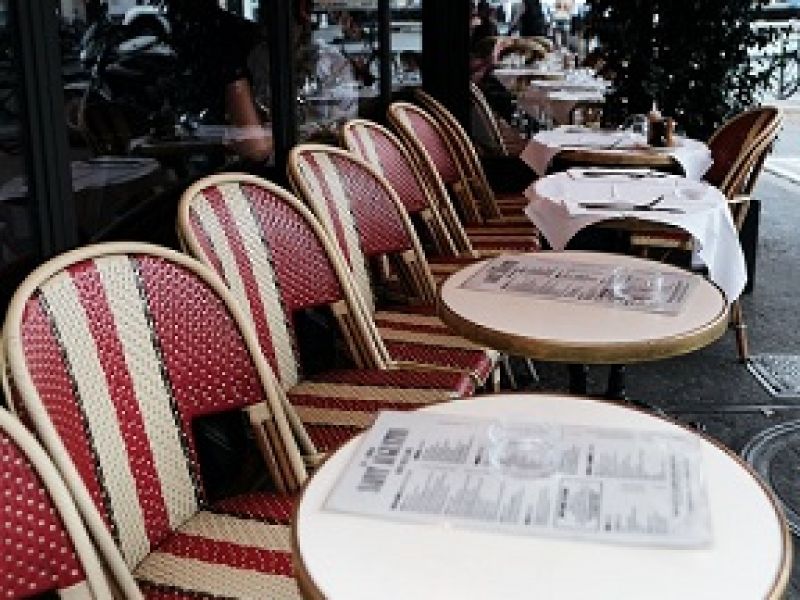Of the many businesses that comprise the ‘sharing economy’, Airbnb is perhaps the biggest success story. The third largest private company in the world now boasts more than 600,000 properties in 192 countries around the world, and has transformed thousands of homeowners into letters and tour guides - as well as putting no end of pressure on the hotel industry.
The road to success has featured a few bumps, however, and several of them have been in Paris - both the world’s most visited city and Airbnb’s most popular market. A raft of laws has sought to limit the number of rentals in the city, and make it more difficult for people to let in the long-term. But you can still rent out your Parisian property on Airbnb; you just have to be more careful about it. Here then is our guide to legally renting your property in Paris on Airbnb.
Find out how your property is classified
When renting your property in Paris on Airbnb, it’s important to know whether it’s your active residence or a second home. This will make a big difference as to how it is perceived, how long you can let for and how much money you can make without being taxed like a business.
Related article: What the 2024 Olympics is doing for real estate and business in Paris
A first home has to be occupied for at least two thirds of the year; however, this figure is flexible subject to external factors, such as professional or health reasons or force majeure (i.e. factors out of your control which prevent you from occupying the property for the stated duration, such as health or personal emergencies that require you to spend time away). Conversely, a second home is occupied for four months or less during the year.
If you’re looking to sublet an apartment or rented property, you will have to seek permission from your landlord. This was not the case until 2014, but is now actively restricted and heavily enforced by French authorities. One recent case saw a French woman who did not inform her landlady about rentals having to pay her almost £45,000 in earnings and damages. If you secure permission, you are not allowed to rent at a higher rate than the rent you already pay.
There are also a number of separate distinctions that may apply to your property when registering with the municipality. These include:
- Furnished lodgings for tourism
Furnished lodgings apply to the repeated, short term rental of a single furnished room. Only tourists are allowed to rent this kind of lodging, which can exist within any furnished and occupied property. Applying for furnished lodging status is a separate process which requires a number of steps, and it’s advised that you seek specific help from a real estate expert to achieve this.
- Guest rooms
Guest rooms are similar to furnished lodgings, except that the owner of the property is expected to reside there during the guests’ stay, and will usually make provide services similar to a bed and breakfast, including breakfast and clean linens. Unlike B&Bs or furnished lodgings, however, guest rooms cannot use France’s official star rating system for accommodation. Again, we advise that you seek expert help in order to achieve guest room classification.
Decide how you want to let
If you live in Paris for the majority of the year and are just looking to make some money while you’re away, the requirements are much less stringent. Parisians can legally rent their properties for up to four months (120 days) without being considered a rental business. You will however be required to register on the city’s web portal, receiving the identification number you’ll need to legally rent through Airbnb.
Related article: How France became Europe’s top investment destination
If you let out a property for more than 120 days each year - or if you let to a single tenant for more than 90 days - you are legally considered to be a rental business. This will bring you more in line with a traditional hotel or landlord, and all of the regulation that entails. You will have to:
- declare your activities at the local City Hall;
- request permission to operate as a non-professional landlord at companies’ house;
- change your property classification in the Land Register, and the Maisons Cordiales (homeowner association) if applicable.
Register with the municipality
Previously, you did not have to register for short term rentals in Paris. This is no longer the case, and as of June 2017, the city requires anyone renting a first or second home for 120 days or less to register online. If you rent more than one property, you will have to complete this process for each property. Failing to register your rental could land you a 50,000 euro fine.
Exceptions to this include:
- Bed & breakfasts;
- Hotels;
- Furnished lodgings for tourism;
- Secondary residences let for more than 120 days.
When you apply for a registration number (the bit you need for Airbnb), you are actually publicly declaring the status of your property and your intention to let. As such, applications cannot normally be denied. However, there may be repercussions later on if your property is found not to comply with the definition you set out in your application, as well as from dissatisfied guests.
 Register for taxes and contributions
Register for taxes and contributions
If you are not classified as a rental business, your earnings will have to be declared in your income tax return. There are two systems which affect how much income tax you will pay:
1. Micro-BIC
If you earn €32,900 or less from letting your Airbnb property each year, you will pay income tax under the Micro-BIC regime. This gives you a 50% flat rate allowance on your income tax, meaning you will only be taxed on half of your earnings from your Airbnb property.
Related article: How to open a branch of your business in France the easy way
For gîtes, guest rooms and furnished lodgings for tourism, this threshold rises to €80,300 with a 71% allowance. However, the Micro-BIC regime does not allow you to claim any expenses.
2. Deduction of real expenses (RRS)
For lettors earning between €32,900 and €763,000, the real expenses (RRS) regime will apply. This scheme allows you to deduct business expenses including maintenance, repairs and operating expenses instead of a tax deduction, but has far greater administrative requirements, making it generally more expensive than the BIC. These increase further above €763,000.
If you make less than €305, you will not have to pay any income tax. This threshold rises to €760 if you are renting out a room in your main residence.
Social contributions
If you are a permanent resident in France, you will be required to pay social contributions on top of your taxes. These do not generally apply to members of the European Economic Area (EEA) or countries which France has signed double-taxation treaties, such as the UK.
Related article: How To Start a Holiday Cottage or Gîte Business in France
If you make more than €23,000 euros in annual income from a furnished rental, you will usually be required to join the Sécurité sociale indépendants, an association for self-employed people, which requires that you pay certain contributions. As of January 2019, all platforms which take these contributions have to report their revenues to the government, increasing transparency.
Under certain conditions, you may instead be able to join the general social security scheme, which can potentially reduce your contributions based on how much money you make. It’s highly advisable to seek professional help to determine which scheme you qualify for, how to go about joining, and the process of paying your contributions.
Other taxes
Homes in the busiest tourist areas are also obliged to charge a tourism tax. As of 2019, Airbnb will collect this tax for you at the rate for non-ranked accommodation. If your accommodation is ranked under the star system, you will need to collect the remainder of the tourist tax and pay this to the municipality every six months.
Related article: How to transfer your business to France
It’s also highly advisable to invest in insurance for your property, which will have to be appropriate to the nature of your letting. The nature of this insurance may also need to be integrated into the lease on the property, and made obvious to any tenants in the on-site or online documentation. Once again, you may wish to seek help to find insurance that covers you adequately. As you can see, the steps required to let out property on Airbnb in Paris are not necessarily that complex or financially burdensome, but they can be lengthy and complex.
If you’re looking to rent out a room or property in Paris on Airbnb, get in touch with us today by calling 0033 (0) 1 53 57 49 10 or emailing us through our contact page. We’ll help determine the classification of your enterprise, and liaise with chartered accountants in France to guide you through the whole process.







